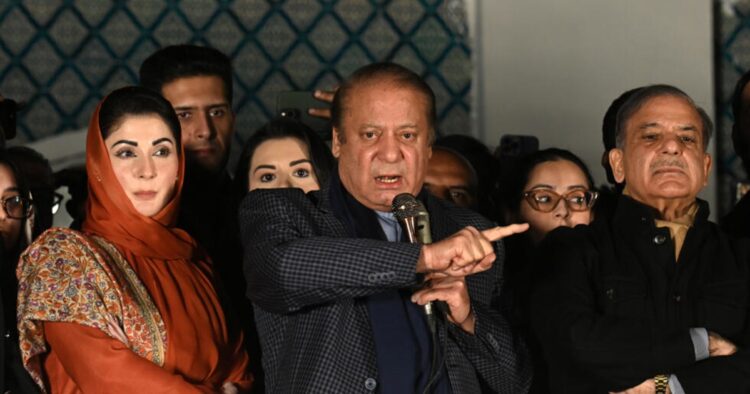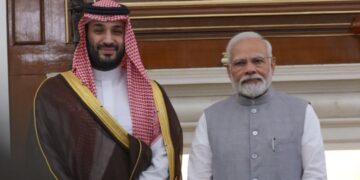In Pakistan, the aftermath of the recent elections has brought days of uncertainty and political maneuvering as no single party secured a clear majority. Independent candidates, many of whom are loyal to imprisoned former Prime Minister Imran Khan, emerged as strong contenders in the final results released on Saturday.
Imran Khan’s Pakistan Tehreek-e-Insaf (PTI) party, despite facing obstacles such as a crackdown on campaigning, managed a notable performance. However, the Pakistan Muslim League-Nawaz (PML-N), backed by the military establishment, declared itself victorious, although it lacks a majority to form a government outright.
To establish a government, the PML-N will need to negotiate and form alliances with other parties and independent candidates. Reports suggest that talks have already begun between PML-N leaders and representatives from other parties in Lahore, the party’s stronghold.
Expressing the need for collaboration, former Prime Minister Nawaz Sharif stated, “We don’t have enough of a majority to run the government ourselves, therefore we invite the other parties and candidates who have been successful to work with us.”
The election results revealed that independent candidates secured a significant number of seats, with a large portion aligning themselves with Imran Khan’s faction. As of early Saturday, independents had won at least 98 seats, out of which 87 were loyal to Khan.
Meanwhile, the PML-N secured 69 seats, and the Pakistan Peoples Party (PPP) obtained 51 seats. The remaining seats out of the total 266 in the National Assembly are yet to be announced.
However, allegations of vote-rigging and electoral irregularities surfaced, leading to protests in various parts of the country. Instances of violence were reported, including clashes between PTI supporters and law enforcement in Khyber Pakhtunkhwa.
Despite facing legal challenges and being barred from contesting the elections, Imran Khan’s influence remained significant, particularly in Khyber Pakhtunkhwa, where most of the seats won by independents were concentrated.
The international community, including the UK and US, expressed concerns over the election process, urging thorough investigations into allegations of interference and fraud.
The decision to suspend mobile phone services on election day due to security concerns drew criticism from digital rights activists. Many viewed the blackout as further evidence of manipulation and interference in the electoral process.
As political negotiations unfold and the country grapples with the aftermath of the elections, uncertainty looms over Pakistan’s political landscape. The need for coalition-building and consensus among various parties highlights the challenges ahead in forming a stable government.

















Comments